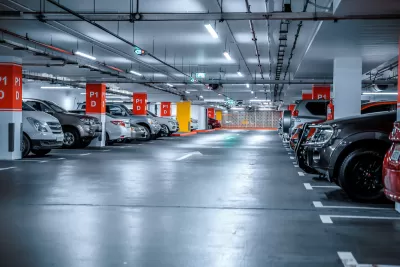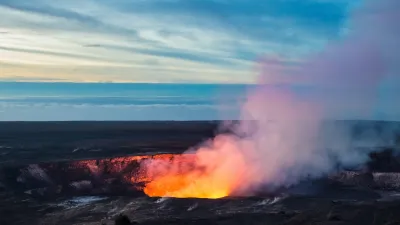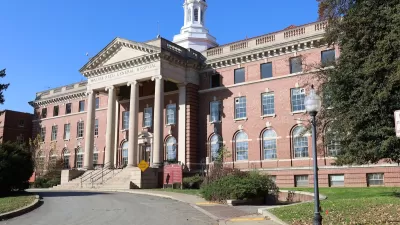A European study measured ambient air and groundwater temperatures in underground parking garages and found that the heat generated by these structures could potentially power thousands of households.

A new study highlights the untapped resource that is emanating from underground parking garages, writes Prachi Patel in Anthropocene Magazine. “Cars parked in underground parking lots throw off so much heat that it warms up groundwater beneath them. This wasted energy could be enough to supply over 14,600 households with heat in Berlin alone, researchers report in the journal Science of the Total Environment.”
Using the heat for other purposes would also benefit biodiversity by protecting species sensitive to temperature rise and limiting bacterial growth caused by higher water temperatures.
The researchers used heat sensors in 31 underground garages in Germany, Austria, and Switzerland to measure ambient air and groundwater temperature. The study also indicated that “Public underground car parks heat up the groundwater more than private facilities as they are often deeper and the cars park there for shorter periods of time.”
“Integrating heat pumps into existing ventilation systems might be a way to utilize this waste heat energy from underground parking lot air, the researchers say.”
FULL STORY: Parking garages are a huge wasted heat source

Study: Maui’s Plan to Convert Vacation Rentals to Long-Term Housing Could Cause Nearly $1 Billion Economic Loss
The plan would reduce visitor accommodation by 25,% resulting in 1,900 jobs lost.

North Texas Transit Leaders Tout Benefits of TOD for Growing Region
At a summit focused on transit-oriented development, policymakers discussed how North Texas’ expanded light rail system can serve as a tool for economic growth.

Why Should We Subsidize Public Transportation?
Many public transit agencies face financial stress due to rising costs, declining fare revenue, and declining subsidies. Transit advocates must provide a strong business case for increasing public transit funding.

How to Make US Trains Faster
Changes to boarding platforms and a switch to electric trains could improve U.S. passenger rail service without the added cost of high-speed rail.

Columbia’s Revitalized ‘Loop’ Is a Hub for Local Entrepreneurs
A focus on small businesses is helping a commercial corridor in Columbia, Missouri thrive.

Invasive Insect Threatens Minnesota’s Ash Forests
The Emerald Ash Borer is a rapidly spreading invasive pest threatening Minnesota’s ash trees, and homeowners are encouraged to plant diverse replacement species, avoid moving ash firewood, and monitor for signs of infestation.
Urban Design for Planners 1: Software Tools
This six-course series explores essential urban design concepts using open source software and equips planners with the tools they need to participate fully in the urban design process.
Planning for Universal Design
Learn the tools for implementing Universal Design in planning regulations.
City of Santa Clarita
Ascent Environmental
Institute for Housing and Urban Development Studies (IHS)
City of Grandview
Harvard GSD Executive Education
Toledo-Lucas County Plan Commissions
Salt Lake City
NYU Wagner Graduate School of Public Service





























